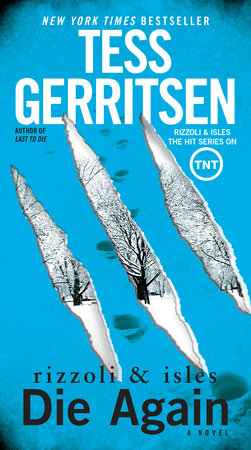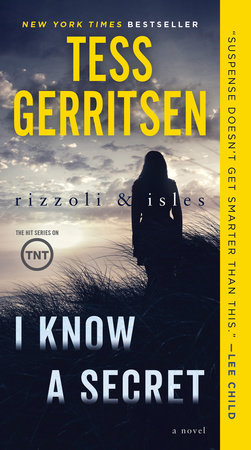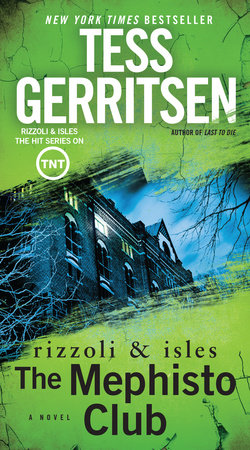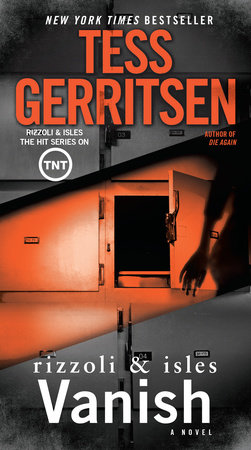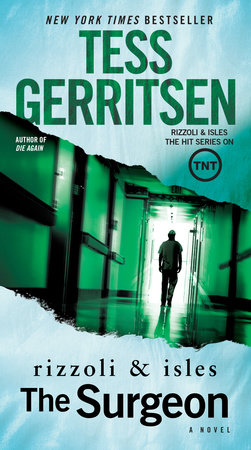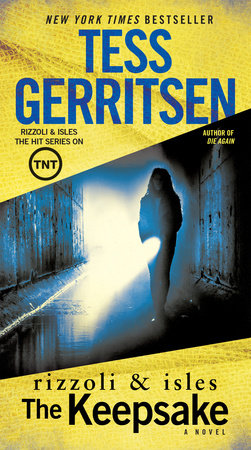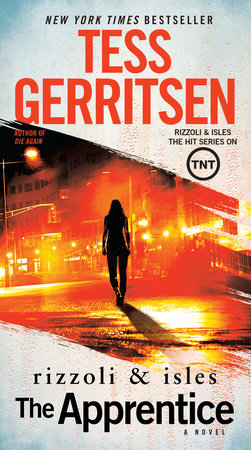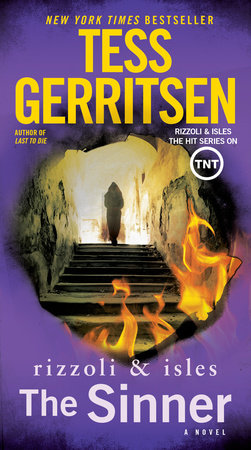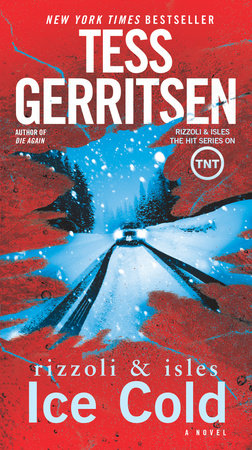Excerpt
Die Again: A Rizzoli & Isles Novel
TWO
Boston
It was the mailman who called it in. Eleven fifteen a.m., shaky voice on a cell phone: I’m on Sanborn Avenue, West Roxbury, 02132. The dog—I saw the dog in the window . . . And that’s how it came to the attention of Boston PD. A cascade of events that started with an alert mail carrier, one in an army of foot soldiers deployed six days a week in neighborhoods across America. They are the eyes of the nation, sometimes the only eyes that notice which elderly widow has not collected her mail, which old bachelor doesn’t answer his doorbell, and which porch has a yellowing pile of newspapers.
The first clue that something was amiss inside the large house on Sanborn Avenue, zip code 02132, was the overstuffed mailbox, something that US postal carrier Luis Muniz first noticed on day number two. Two days’ worth of uncollected mail wasn’t necessarily a cause for alarm. People go away for the weekend. People forget to request a hold on home delivery.
But on day number three, Muniz started to worry.
On day number four, when Muniz opened the mailbox and found it still jam-packed with catalogs and magazines and bills, he knew he had to take action.
“So he knocks on the front door,” said Patrolman Gary Root. “Nobody answers. He figures he’ll check with the next-door neighbor, see if she knows what’s going on. Then he looks in the window and spots the dog.”
“That dog over there?” asked Detective Jane Rizzoli, pointing to a friendly-looking golden retriever who was now tied to the mailbox.
“Yeah, that’s him. The tag on his collar says his name’s Bruno. I took him outta the house, before he could do any more . . .” Patrolman Root swallowed. “Damage.”
“And the mail carrier? Where’s he?”
“Took the rest of the day off. Probably getting a stiff drink somewhere. I got his contact info, but he probably can’t tell you much more than what I just told you. He never went inside the house, just called nine one one. I was first on the scene, found the front door unlocked. Walked in and . . .” He shook his head. “Wish I hadn’t.”
“You talk to anyone else?”
“The nice lady next door. She came out when she saw the cruisers parked out here, wanted to know what was going on. All I told her was that her neighbor was dead.”
Jane turned and faced the house where Bruno the friendly retriever had been trapped. It was an older two-story, single-family home with a porch, a two-car garage, and mature trees in front. The garage door was closed, and a black Ford Explorer, registered to the homeowner, was parked in the driveway. This morning, there would have been nothing to distinguish the residence from the other well-kept houses on Sanborn Avenue, nothing that would catch a cop’s eye and make him think: Wait a minute, there’s something wrong here. But now there were two patrol cars parked at the curb, rack lights flashing, which made it obvious to anyone passing by that yes, something was very wrong here. Something that Jane and her partner, Barry Frost, were about to confront. Across the street, a gathering crowd of neighbors stood gaping at the house. Had any of them noticed the occupant hadn’t been seen in a few days, hadn’t walked his dog or picked up his mail? Now they were probably telling one another: Yeah, I knew something wasn’t right. Everyone’s brilliant in retrospect.
“You want to walk us through the house?” Frost asked Patrolman Root.
“You know what?” said Root. “I’d rather not. I finally got the smell outta my nose, and I don’t care for another whiff of it.”
Frost swallowed. “Uh . . . that bad?”
“I was in there maybe thirty seconds, tops. My partner didn’t last even that long. It’s not like there’s anything in there I need to point out to you. You can’t miss it.” He looked at the golden retriever, who responded with a playful bark. “Poor pup, trapped in there with nothing to eat. I know he had no choice, but still . . .”
Jane glanced at Frost, who was staring at the house like a condemned prisoner facing the gallows. “What’d you have for lunch?” she asked him.
“Turkey sandwich. Potato chips.”
“Hope you enjoyed it.”
“This isn’t helping, Rizzoli.”
They climbed the porch steps and paused to pull on gloves and shoe covers. “You know,” she said, “there’s this pill called Compazine.”
“Yeah?”
“Works pretty good for morning sickness.”
“Great. When I get knocked up, I’ll give it a try.”
They looked at each other and she saw him take a deep breath, just as she was doing. One last gulp of clean air. With a gloved hand, she opened the door, and they stepped inside. Frost lifted his arm to cover his nose, blocking the smell that they were far too familiar with. Whether you called it cadaverine or putrescine, or any other chemical name, it all came down to the stench of death. But it was not the smell that made Jane and Frost pause just inside the door; it was what they saw hanging on the walls.
Everywhere they looked, eyes stared back at them. A whole gallery of the dead, confronting these new intruders.
“Jesus,” murmured Frost. “Was he some kind of big-game hunter?”
“Well, that is definitely big game,” said Jane, staring up at the mounted head of a rhino, and wondering what kind of bullet it took to kill such a creature. Or the Cape buffalo beside it. She moved slowly past the row of trophies, her shoe covers swishing across the wood floor, gaping at animal heads so life-like she almost expected the lion to roar. “Are these even legal? Who the hell shoots a leopard these days?”
“Look. The dog wasn’t the only pet running around in here.”
A variety of reddish-brown paw prints tracked across the wood floor. The larger set would match Bruno, the golden retriever, but there were smaller prints as well, dotted throughout the room. Brown smears on the windowsill marked where Bruno had propped up his front paws to look out at the mail carrier. But it wasn’t merely the sight of a dog that caused Luis Muniz to dial 911; it was what protruded from that dog’s mouth.
A human finger.
She and Frost followed the trail of paw prints, passing beneath the glassy eyes of a zebra and a lion, a hyena and a warthog. This collector did not discriminate by size; even the smallest creatures had their ignominious place on these walls, including four mice posed with tiny china cups, seated around a miniature table. A Mad Hatter’s grotesque tea party.
As they moved through the living room and into a hallway, the stench of putrefaction grew stronger. Though she could not yet see its source, Jane could hear the ominous buzz of its supplicants. A fat fly buzzed a few lazy circles around her head and drifted away through a doorway.
Always follow the flies. They know where dinner is served.
The door hung ajar. Just as Jane pushed it wider, something white streaked out and shot past her feet.
“Holy crap!” yelled Frost.
Heart banging, Jane glanced back at the pair of eyes peering out from under the living room sofa. “It’s just a cat.” She gave a relieved laugh. “That explains the smaller paw prints.”
“Wait, you hear that?” said Frost. “I think there’s another cat in there.”
Jane took a breath and stepped through the doorway, into the garage. A gray tabby trotted over to greet her and silkily threaded back and forth between her legs, but Jane ignored it. Her gaze was fixed on what hung from the ceiling hoist. The flies were so thick she could feel their hum in her bones as they swarmed around the ripe feast that had been flayed open for their convenience, exposing meat that now squirmed with maggots.
Frost lurched away, gagging.
The nude man hung upside down, his ankles bound with orange nylon cord. Like a pig carcass hanging in a slaughterhouse, his abdomen had been sliced open, the cavity stripped of all organs. Both arms dangled free, and the hands would have almost touched the floor—if the hands had still been attached. If hunger had not forced Bruno the dog, and maybe the two cats as well, to start gnawing off the flesh of their owner.
“So now we know where that finger came from,” Frost said, his voice muffled behind his sleeve. “Jesus, it’s everyone’s worst nightmare. Getting eaten by your own cat . . .”
For three starving house pets, what now hung from the hoist would certainly look like a feast. The animals had already disarticulated the hands and stripped away so much skin and muscle and cartilage from the face that the white bone of one orbit was exposed, a pearly ridge peeking through shredded flesh. The facial features were gnawed beyond recognition, but the grotesquely swollen genitals left no doubt this was a man—an older one, judging by the silvery pubic hair.
“Hung and dressed like game,” said a voice behind her.
Startled, Jane turned to see Dr. Maura Isles standing in the doorway. Unlike Frost, who was still shielding his face with his sleeve, Maura did not quail from the smell, but moved straight to the carcass, heedless of the flies that were dive-bombing her head. “This is disturbing,” she said.
“Disturbing?” Jane snorted. “I was thinking more along the lines of totally fucked up.”
The gray tabby abandoned Jane and went to Maura, where it rubbed back and forth against her leg, purring loudly. So much for feline loyalty.
Maura nudged the cat away with her foot, but her attention stayed focused on the body. “Abdominal and thoracic organs missing. The incision looks very decisive, from pubis down to xiphoid. It’s what a hunter would do to a deer or a boar. Hang it, gut it, leave it to age.” She glanced up at the ceiling hoist. “And that looks like something you’d use to hang game. Clearly this house belongs to a hunter.”
“Those look like what a hunter would use, too,” said Frost. He pointed to the garage workbench, where a magnetized rack held a dozen lethal-looking knives. All of them appeared clean, the blades bright and gleaming. Jane stared at the boning knife. Imagined that razor edge slicing through flesh as yielding as butter.
“Odd,” said Maura, focusing on the torso. “These wounds here don’t look like they’re from a knife.” She pointed to three incisions that sliced down the rib cage. “They’re perfectly parallel, like blades mounted together.”
“Looks like a claw mark,” said Frost. “Could the animals have done that?”
“They’re too deep for a cat or dog. These appear to be postmortem, with minimal oozing . . .” She straightened, focusing on the floor. “If he was butchered right here, the blood must have been hosed away. See that drain in the concrete? It’s something a hunter would install if he used this space to hang and age meat.”
“What’s the thing about aging? I never understood the point of hanging meat,” said Frost.
“Postmortem enzymes act as a natural tenderizer, but it’s usually done at temperatures just above freezing. In here it feels like, what, about fifty degrees? Warm enough to get decomp. And maggots. I’m just glad it’s November. It would smell a lot worse in August.” With a pair of tweezers, Maura picked off one of the maggots and studied it as it squirmed in her gloved palm. “These look like third instar stage. Consistent with a time of death about four days ago.”
“All those mounted heads in the living room,” said Jane. “And he ends up hanging, like some dead animal. I’d say we’ve got a theme going here.”
“Is this victim the homeowner? Have you confirmed his identity?”
“Kind of hard to make a visual ID with his hands and face gone. But I’d say the age matches. The homeowner of record is Randall Gott, age sixty-four. Divorced, lived alone.”
“He certainly didn’t die alone,” said Maura, staring into the gaping incision at what was now little more than an empty shell. “Where are they?” she said, and suddenly turned to face Jane. “The killer hung the body here. What did he do with the organs?”
For a moment, the only sound in the garage was the humming of flies as Jane considered every urban legend she’d ever heard about stolen organs. Then she focused on the covered garbage can in the far corner. As she approached it, the stench of putrefaction grew even stronger, and flies swarmed in a hungry cloud. Grimacing, she lifted the edge of the lid. One quick glance was all she could stomach before the smell made her back away, gagging.
“I take it you found them,” said Maura.
“Yeah,” muttered Jane. “At least, the intestines. I’ll leave the full inventory of guts to you.”
“Neat.”
“Oh yeah, it’ll be lots of fun.”
“No, what I mean is, the perp was neat. The incision. The removal of the viscera.” Paper shoe covers crackled as Maura crossed to the trash can. Both Jane and Frost backed away when Maura pried open the lid, but even from the opposite side of the garage they caught the stomach-turning whiff of rotting organs. The odor seemed to excite the gray tabby, who was rubbing against Maura with even more fervor, mewing for attention.
“Got yourself a new friend,” said Jane.
“Normal feline marking behavior. He’s claiming me as his territory,” said Maura as she plunged a gloved hand into the garbage can.
“I know you like to be thorough, Maura,” said Jane. “But how about picking through those in the morgue? Like, in a biohazard room or something?”
“I need to be certain . . .”
“Of what? You can smell they’re in there.” To Jane’s disgust, Maura bent over the garbage can and reached even deeper into the pile of entrails. In the morgue, she’d watched Maura slice open torsos and peel off scalps, de-flesh bones and buzz-saw through skulls, performing all these tasks with laser-guided concentration. That same icy focus was on Maura’s face as she dug through the congealed mass in the trash can, heedless of the flies now crawling in her fashionably clipped dark hair. Was there anyone else who could look so elegant while doing something so disgusting?
“Come on, it’s not like you haven’t seen guts before,” said Jane.
Maura didn’t answer as she plunged her hands deeper.
“Okay.” Jane sighed. “You don’t need us for this. Frost and I will check out the rest of the—”
“There’s too much,” Maura muttered.
“Too much what?”
“This isn’t a normal volume of viscera.”
“You’re the one who’s always talking about bacterial gases. Bloating.”
“Bloating doesn’t explain this.” Maura straightened, and what she held in her gloved hand made Jane cringe.
“A heart?”
“This is not a normal heart, Jane,” said Maura. “Yes, it has four chambers, but this aortic arch isn’t right. And the great vessels don’t look right, either.”
“Randall Gott was sixty-four,” said Frost. “Maybe he had a bad ticker.”
“That’s the problem. This doesn’t look like a sixty-four-year-old man’s heart.” Maura reached into the garbage pail again. “But this one does,” she said, and held out her other hand.
Jane looked back and forth between the two specimens. “Wait. There are two hearts in there?”
“And two complete sets of lungs.”


